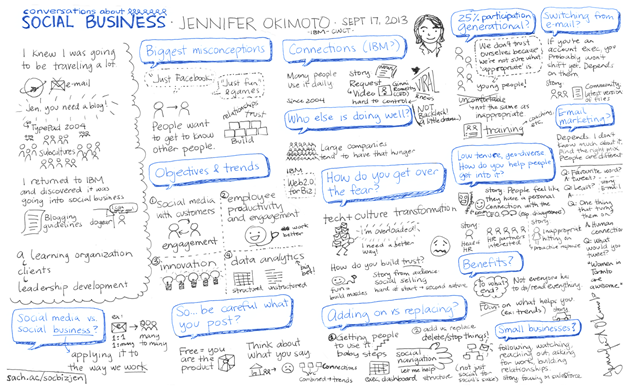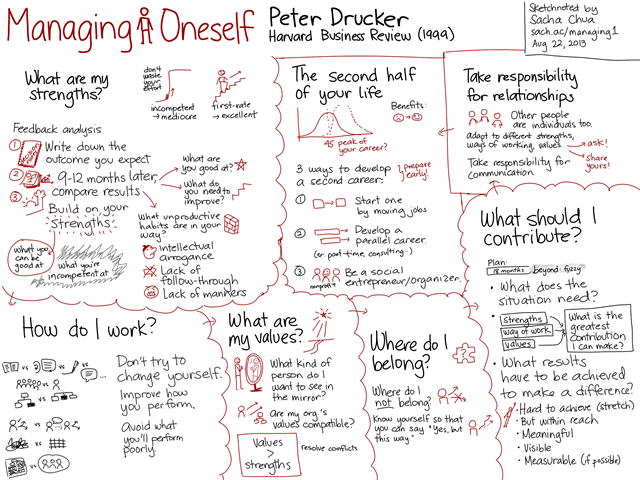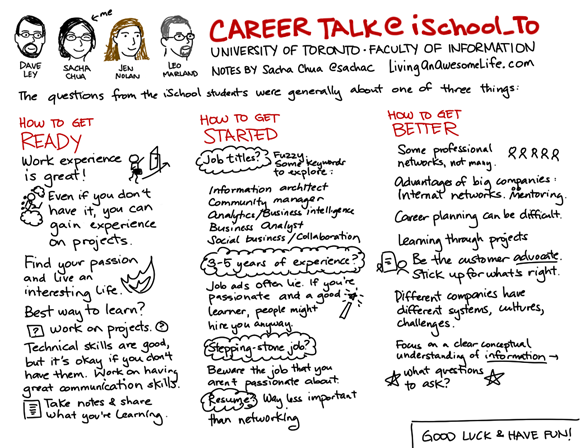The power of no: being completely* unhireable until 2017 (and possibly longer)
Posted: - Modified: | career, experimentWhen I started this 5-year experiment, I didn’t know if I could stick with it. My track record for sticking with interests is not that good. I’m delighted to report that (semi-)retirement gets easier and easier. I am learning to say no.

By coincidence, two of my mentors (who had moved on to separate companies after IBM) got in touch with me one after the other to find out if I was interested in some upcoming job opportunities. Good stuff. Right up my alley. Wonderful people.
I said no. Actually, I said something along the lines of: “Thank you for reaching out! That sounds fantastic. However, I am semi-retired and completely* unhireable until 2017 (or possibly later), so I’ll just have to wish you good luck on your search. I’m sure you’ll find someone awesome out there. If I think of returning to work, I will be sure to reach out to you right away. Thanks again!”
*If a significant financial need comes up, I have no qualms about suspending this experiment and returning to the wonderful world of work. I enjoyed working with excellent teams. I’d love to do it again. While I have the opportunity and privilege to work on things entirely of my choosing, though, I should do that. Not everyone can do so, and I shouldn’t waste the chance.
Learning how to say no is amazing. I used to feel guilty about this. I wanted to be in more than one place at a time. Then I realized that I am not a special snowflake and there are other awesome people out there who can make things happen. Sure, they might not bring my particular configuration of skills, but they’ll bring other useful combinations. This makes it easier for me to say no, because it leaves room for someone else to say yes.
Pre-making decisions helps a lot. When I was preparing for my experiment, I thought about the conditions in which I would stop or reconsider. If something happened to W-, I might go back to work. If our expenses didn’t stay in line with my projections, I might go back to work. If, if, if. If everything was going fine, though, then any qualms or anxieties would just be the product of my irrational lizard-brain trying to run back to the safety of the known, familiar, and explainable-at-cocktail-parties. (Not that I go to cocktail parties, and not that “I’m in consulting” was really an explanation. But it checked the right conversational boxes, while “I’m semi-retired” throws people for a loop.) Knowing my lizard-brain helps me work around it.
I often sketch out basic decisions in advance. It’s the programmer way. If this, then that. Check for warnings and errors. Handle exceptions. It means not having to worry as much, which is great. It means knowing when I might need to reconsider so that I’m not blindly following the same plan when circumstances change. In a way, I live through many possible lives.
It’s been a year and a half since I started my experiment with semi-retirement. My living expenses are almost exactly on track. My aspirations are definitely off track. I hadn’t expected to be this comfortable with writing and learning, and I’m excited about where this is going. This is good.
The road isn’t lonely at all. W- has been absolutely wonderful and supportive, and I’m running into more and more people on some kind of sabbatical or early retirement. The path is surprisingly well-travelled, the kind of secret trail that you might not hear about in your guidebook but which gets passed on from person to person in whispers and geocaches. I say no so that I can say yes.
Image credits: Crossroads (Mopic, Shutterstock)



